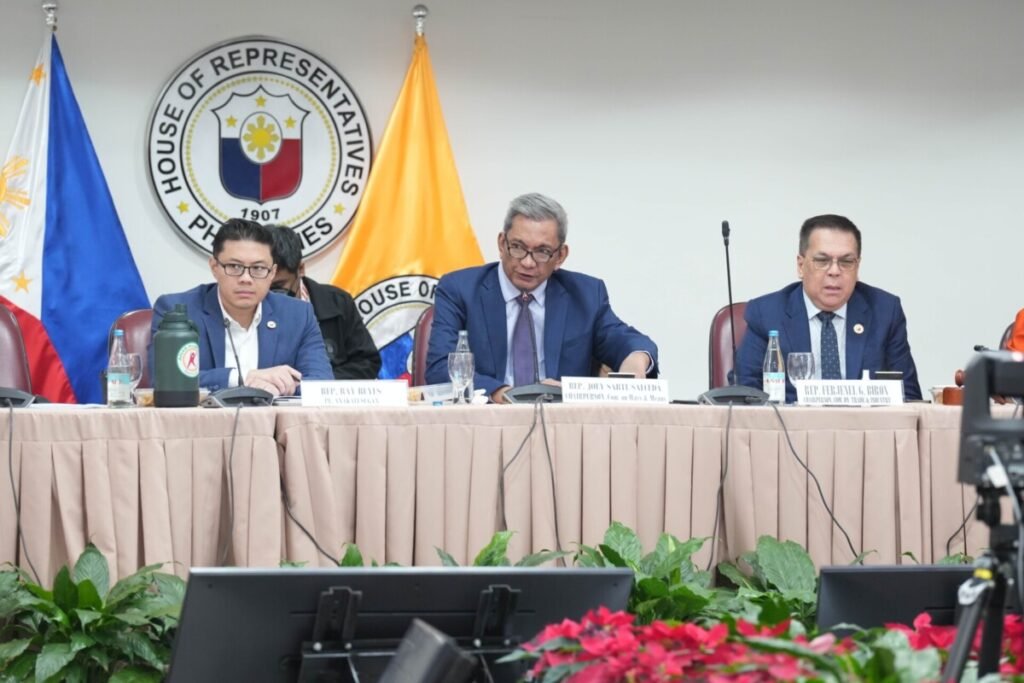
THE “Murang Pagkain” super committee conducted its fifth meeting Wednesday to discuss the impact of irrigation in the rice supply chain.
Super committee lead chairman and Albay Rep. Joey Salceda said, “It was established that lowering of tariffs under EO (Executive Order) 62 did not translate – translated to only 50 centavos – to any significant price decrease.”
He committed to hold unscrupulous business entities to account for the “prohibitive” rice prices.
Salceda explained that addressing the issue also entails other approaches aside from prosecution like shifting the focus on long-term solution to increase rice planting intensity in the country.
“The important role of irrigation is one of the key infrastructures that can successfully increase farm productivity with regard to rice production. It plays an important role in ensuring rice sufficiency and improve farmers income which can never be over emphasized as it supports over 50% of the country’s agricultural lands,” said Rep. Rosanna “Ria” Vergara (3rd District, Nueva Ecija).
Rep. Stella Quimbo (Marikina) explored the contract farming program of the National Irrigation Administration (NIA) as the “golden parachute” for ensuring the affordability of rice in local markets.
Under the program, NIA was able to sell rice at P29 per kilo.
NIA Administrator Eduardo Eddie Guillen explained that NIA works with irrigation associations (IAs), providing them with funds equivalent to 50% of the target yield to be spent for farm inputs, with the remaining funds to be paid at harvest time. Under the program, farmers are free to sell yield that is above the contracted target.
He estimated that the P29 per kilo rice comprises only 25% of the total yield under the contract farming program; the 75% are sold at higher prices. Guillen added that the program is aimed at changing the practice of planting rice during the wet season only, when farmers are assured of water for their crops.
Guillen said NIA can supply the water requirements of farmers during summer so farmers can also harvest before typhoon season.
Quimbo asked NIA to conduct further studies to determine the requirements and timeline when the target P20/kilo rice may be achieved, and present their projections at future meetings of the super committee.
Rep. Wilter Palma raised the need to provide farmers access to credit. “Paano natin (mabibigyan ng funding) yung mga farmers? Kasi pinaka importante ngayon is the credit facilities to our farmer from day one until it is harvested, so that middle men will not be able to interfere, kasi with due respect sila ang kumikita ng malaki,” he said.
Palma proposed that an irrigator-farmers cooperative be also created in every municipality that will focus on rice farming and high value crops.
House Committee on Trade and Industry chairperson Rep. Ferjenel Biron cited Thailand during the time of former Prime Minister Thaksin Shinawatra as a model on agricultural financing.
“They have been very successful. Ang problema sa atin, walang access to credit ang ating mga farmers,” Biron said.
Pampanga Rep. Gloria Macapagal Arroyo agreed and proposed that one of the outputs of the committee should include a bill that will allow land reform beneficiaries to use their land as collateral for credit.






